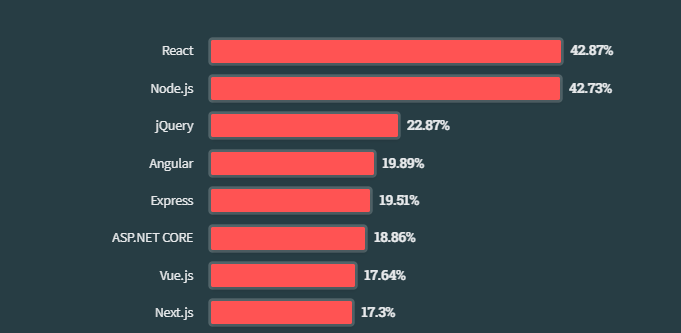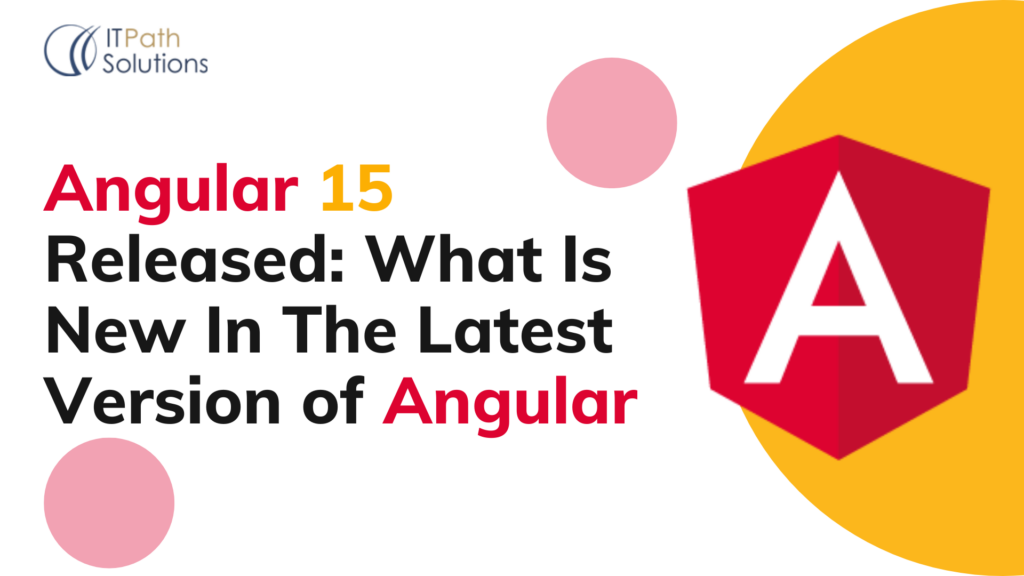Angular vs Vue: Which Is The Best Framework For Your Application In 2024
Angular
In the ever-evolving landscape of web development, choosing the right framework is a crucial decision for developers and businesses alike. Angular and Vue have emerged as two powerful contenders, each with its own strengths and weaknesses. As we navigate through 2024, let’s delve into the specifics of Angular and Vue, exploring their features, pros, and cons, and providing insights into their best use cases.
Choosing the right framework is pivotal for the success of any project. Angular and Vue stand out as powerful contenders, each with its unique strengths and advantages. This exploration delves into the comparison of Angular and Vue, aiming to guide developers and every business CTO in determining the best-fit framework for their applications. By examining their features, advantages, use cases, and considerations, we seek to empower decision-makers to make informed choices tailored to the specific needs of their projects. This article bring you a fair comparison of two such powerful frameworks between – Angular vs Vue and might be able you to help make decision which is best fit for your front-end web application.
Overview of Frameworks – Angular vs Vue In 2024
What is Angular? – An Overview
Angular, developed and maintained by Google, is a comprehensive front-end framework that has gained substantial popularity in the web development community. Originally released in 2010, Angular has undergone significant transformations, with the latest version being Angular 13 at the time of writing.

Angular 17 is its latest version that launched some excellent features to be used in the development, such as Signals, Jest Support, Server-Side Rendering and Hydration. It has a new syntax for control flow, better support for lazy loading of page components, and improved support for Server-Side Rendering (SSR).
Advantages of Angular
Modular Architecture:
Angular promotes a modular architecture, allowing developers to break down complex applications into smaller, manageable modules. This modularity enhances code organization, reusability, and maintainability.
Dependency Injection:
Angular uses dependency injection, a design pattern that facilitates the development of loosely coupled and easily testable components. This promotes code maintainability and makes it easier to manage dependencies.
Cross-Platform Development:
With frameworks like Ionic, Angular supports cross-platform development, allowing developers to create mobile applications that can run on both iOS and Android platforms. This reduces the need for separate codebases for different platforms.
Active and Supportive Community:
Angular has a large and active community of developers. This results in extensive documentation, tutorials, and a wealth of third-party libraries and resources. The community support ensures that developers can find solutions to common issues and stay updated on best practices.
Angular Universal (Server-Side Rendering):
Angular Universal enables server-side rendering (SSR), improving application performance and search engine optimization (SEO). SSR pre-renders pages on the server, reducing load times and enhancing user experience.
Comprehensive Testing Support:
Angular provides a comprehensive testing framework with tools like Jasmine and Karma. Developers can easily write unit tests, integration tests, and end-to-end tests, ensuring the reliability and stability of their applications.
Dynamic and Rich User Interfaces:
Angular’s declarative templates, combined with its powerful data binding and animation support, allow developers to create dynamic and visually appealing user interfaces. This is crucial for building modern web applications with a rich user experience.
Built-In Support for Forms:
Angular comes with a robust forms module that supports both template-driven forms and reactive forms. This simplifies the handling of user input, form validation, and form-related tasks.
What is Vue? – An Overview
Vue, on the other hand, is a progressive JavaScript framework for building user interfaces. It was created by Evan You and first released in 2014. Vue has gained traction for its simplicity and flexibility, making it an appealing choice for developers ranging from beginners to experienced professionals.

Vue is versatile and progressive java script framework, bcoz it allows vue.js developers to change in application without having any core feature built, Vue latest version provide exciting features and updates and also offers opportunities to extend the functionalities of the web application with customized modules and visual components.
Advantages of Vue
Flexible and Versatile:
Vue is flexible and accommodates a variety of project scales. It can be used for small projects, single-page applications (SPAs), or integrated into more extensive projects, providing developers with the flexibility they need.
Reactive Data Binding:
Vue utilizes a reactive data binding system, which allows for automatic updates to the UI when the underlying data changes. This simplifies the development process and improves the responsiveness of applications.
Performance Optimization with Virtual DOM:
Similar to React, Vue uses a Virtual DOM to optimize rendering. This minimizes the number of manipulations needed on the actual DOM, resulting in improved performance and a smoother user experience.
Detailed Error Messages:
Vue.js provides detailed error messages during development, making it easier for developers to identify and fix issues. This aids in debugging and enhances the overall development experience.
Official State Management Library (Vuex):
For managing state in large applications, Vue provides Vuex, an official state management library. Vuex makes it easy to manage and synchronize the state across components in a predictable and efficient manner.
Scoped Styles:
It allows Vue.js developers to encapsulate styles within a component, preventing global style conflicts. This scoped styling approach enhances maintainability and avoids unintended styling interference.
Angular vs Vue: Which One Is High in Demand?
As per the stack overflow report, around 19.89% angular developers are using Angular framework to create web apps and other side around 17.64% vue.js developers are creating web application through vue.js.

Use Cases – Angular vs. Vue
Angular Use Cases:
- Enterprise Applications: Angular’s extensive feature set and modular architecture make it an excellent choice for building enterprise-level applications with complex requirements.
- Large Scale Projects: Projects that demand a high level of structure and organization, especially those involving multiple teams, can benefit from Angular’s opinionated approach.
- Single Page Applications (SPAs): Angular is well-suited for building SPAs, where dynamic content updates and a seamless user experience are essential.
- Mobile Applications: With frameworks like Ionic leveraging Angular, it becomes a strong contender for developing cross-platform mobile applications.
Vue Use Cases:
- Small to Medium-Sized Projects: Vue’s simplicity and ease of integration make it an excellent choice for smaller projects or when a lightweight framework is preferred.
- Prototyping: Vue’s incremental adoption and flexibility make it an ideal choice for quickly prototyping ideas before committing to a full-scale development.
- Startups and Rapid Development: Startups and projects with tight deadlines can benefit from Vue’s quick learning curve and efficient development process.
- Component-Based Interfaces: Vue’s component-based architecture makes it suitable for projects that prioritize reusability and maintainability through modular components.
Top Brands Application built with Angular and Vue
Applications Built with Angular:
- Google Cloud Platform Console: Google’s Cloud Platform Console, a comprehensive tool for managing resources and services on Google Cloud, is built using Angular. Angular’s modularity and data-binding capabilities contribute to the complexity of this enterprise-level application.
- Microsoft Office Online: Microsoft’s Office Online, which includes web versions of popular Office applications like Word, Excel, and PowerPoint, uses Angular. Angular’s structure and features contribute to delivering a seamless and responsive user experience.
- LinkedIn Mobile Web App: LinkedIn’s mobile web application leverages Angular for its front-end development. Angular’s capabilities help in creating a dynamic and responsive user interface for LinkedIn’s extensive professional networking platform.
- Upwork: Upwork, a popular freelancing platform, utilizes Angular for its web application. The framework’s capabilities support the real-time collaboration features and the overall dynamic nature of the platform.
- PayPal: PayPal, a widely used online payment platform, has adopted Angular for its web application. The framework’s structure and modularity contribute to building and maintaining a complex financial application.
Applications Built with Vue:
- Alibaba: Alibaba, one of the world’s largest e-commerce platforms, employs Vue.js in various parts of its website. Vue’s flexibility and ease of integration have been advantageous for creating interactive and dynamic user interfaces.
- Grammarly: Grammarly, a popular writing assistance tool, incorporates Vue.js in its web application. Vue’s reactivity and component-based architecture are well-suited for enhancing the user interface of this language-focused application.
- Behance: Behance, a platform for showcasing and discovering creative work, uses Vue.js for its web application. Vue’s ease of integration and flexibility contribute to providing an intuitive and visually appealing user experience for creatives.
- GitLab: GitLab, a web-based Git repository manager, employs Vue.js in its interface. Vue’s component-based architecture is beneficial for managing the complexity of features and interactions within the collaborative development platform.
- Wizz Air: Wizz Air, a European airline, uses Vue.js for its website. Vue’s adaptability and efficiency contribute to delivering a responsive and user-friendly experience for travelers booking flights and managing their accounts.
Conclusion
The choice between Angular and Vue in 2024 involves a careful consideration of various factors, including project requirements, development team expertise, and the desired development approach. Both Angular and Vue have distinct strengths and advantages that cater to different needs within the ever-evolving web development landscape. Angular, with its comprehensive feature set, modularity, and robust architecture, stands out as an excellent choice for building large-scale enterprise applications. On the other hand, Vue emerges as a flexible and user-friendly option, especially for smaller to medium-sized projects or applications with a need for incremental adoption.
Considering the dynamic nature of the IT industry, where the preferences of developers and businesses may vary, the choice between Angular and Vue ultimately depends on the specific needs and goals of the project at hand. If you would like to discuss something more on frontend frameworks or want to share any insights, feel free to connect with us.
 Healthcare
Healthcare  Education
Education  Real Estate
Real Estate  Logistic
Logistic  Fitness
Fitness  Tourism
Tourism  Travel
Travel  Banking
Banking  Media
Media  E-commerce
E-commerce 



